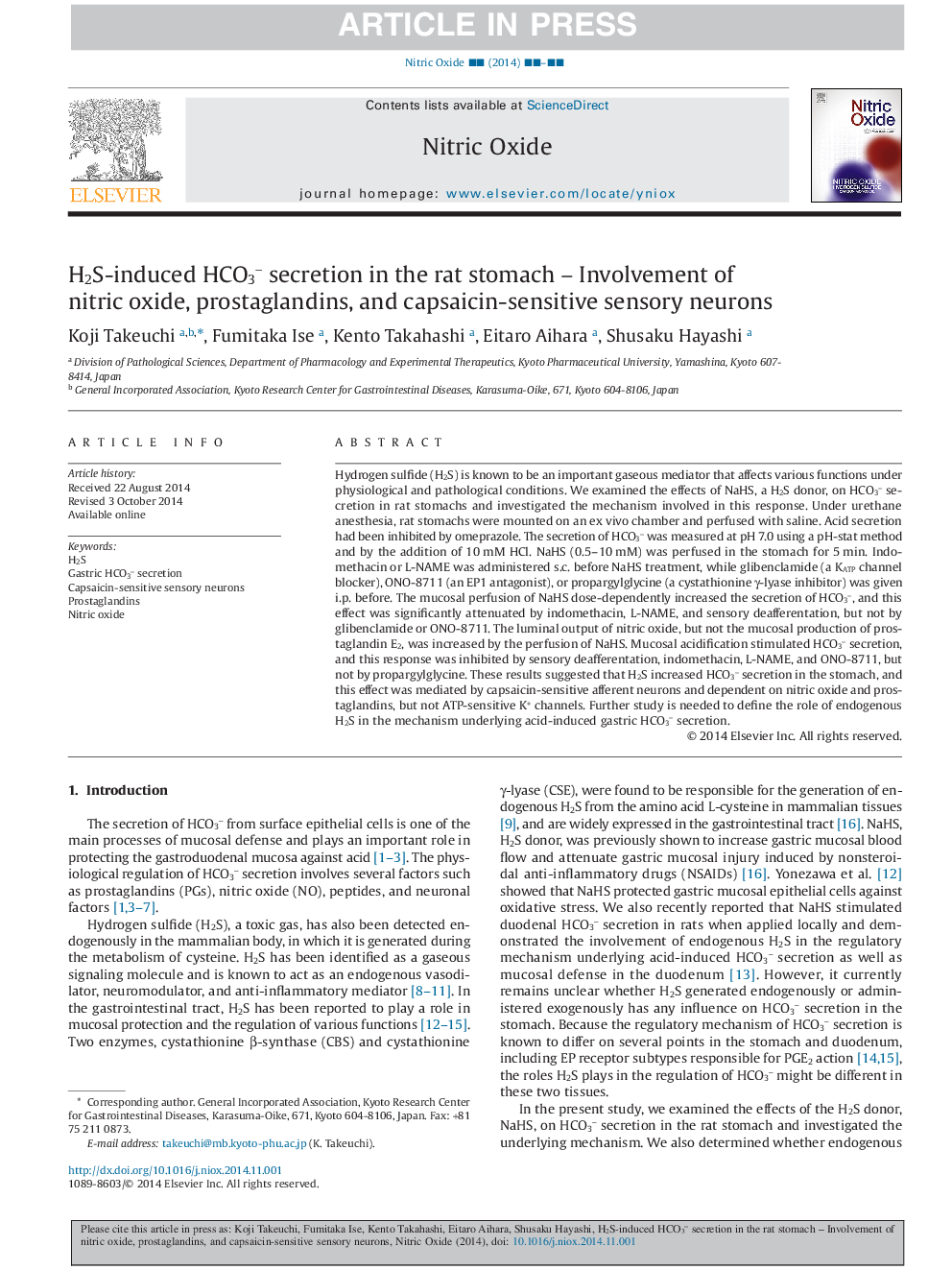| Article ID | Journal | Published Year | Pages | File Type |
|---|---|---|---|---|
| 8345217 | Nitric Oxide | 2015 | 8 Pages |
Abstract
Hydrogen sulfide (H2S) is known to be an important gaseous mediator that affects various functions under physiological and pathological conditions. We examined the effects of NaHS, a H2S donor, on HCO3â secretion in rat stomachs and investigated the mechanism involved in this response. Under urethane anesthesia, rat stomachs were mounted on an ex vivo chamber and perfused with saline. Acid secretion had been inhibited by omeprazole. The secretion of HCO3â was measured at pHâ7.0 using a pH-stat method and by the addition of 10âmM HCl. NaHS (0.5-10âmM) was perfused in the stomach for 5âmin. Indomethacin or L-NAME was administered s.c. before NaHS treatment, while glibenclamide (a KATP channel blocker), ONO-8711 (an EP1 antagonist), or propargylglycine (a cystathionine γ-lyase inhibitor) was given i.p. before. The mucosal perfusion of NaHS dose-dependently increased the secretion of HCO3â, and this effect was significantly attenuated by indomethacin, L-NAME, and sensory deafferentation, but not by glibenclamide or ONO-8711. The luminal output of nitric oxide, but not the mucosal production of prostaglandin E2, was increased by the perfusion of NaHS. Mucosal acidification stimulated HCO3â secretion, and this response was inhibited by sensory deafferentation, indomethacin, L-NAME, and ONO-8711, but not by propargylglycine. These results suggested that H2S increased HCO3â secretion in the stomach, and this effect was mediated by capsaicin-sensitive afferent neurons and dependent on nitric oxide and prostaglandins, but not ATP-sensitive K+ channels. Further study is needed to define the role of endogenous H2S in the mechanism underlying acid-induced gastric HCO3â secretion.
Keywords
Related Topics
Life Sciences
Biochemistry, Genetics and Molecular Biology
Biochemistry
Authors
Koji Takeuchi, Fumitaka Ise, Kento Takahashi, Eitaro Aihara, Shusaku Hayashi,
